That Damn Goat is a multiplayer competitive party game where chaos reigns, frustrations mount, and everything you think you know about your situation is instantly thrown out of whack by a flying, head-butting goat with magical powers! The game was published by MAGIC Spell Studios on Nintendo Switch and Steam.
The project was initiated when MAGIC Spell Studios solicited proposals for their Next Big Game project. My fellow RIT professor Brian Larson’s proposal was one of the finalists. However, Brian had never worked on a game before, so he asked me to help develop his proposal. We worked together to revise the proposal, and pitched it to MAGIC core staff and faculty partners. Our proposal was chosen for development.
That Damn Goat
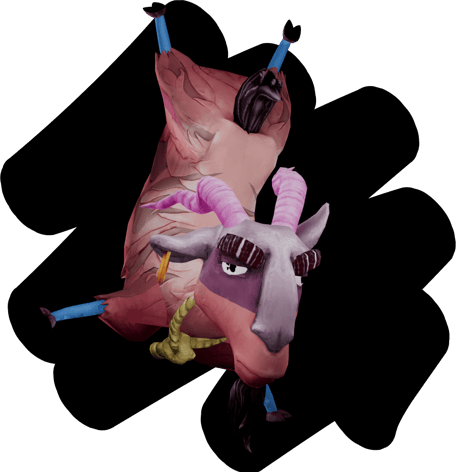

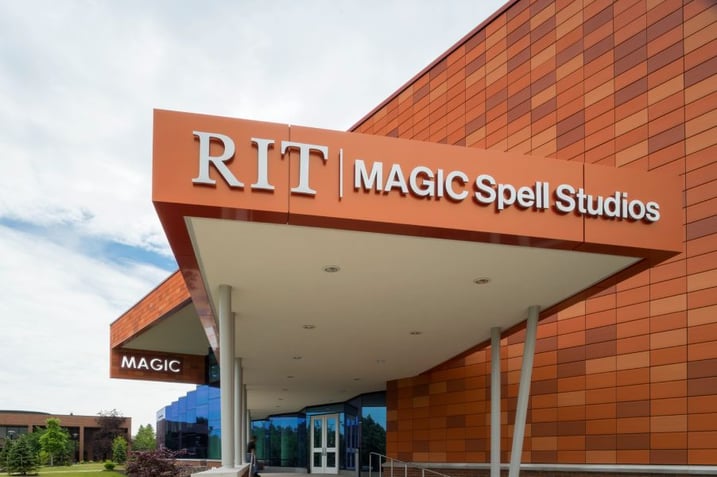

We began production in summer 2020. Brian Larson and I shared the role of Creative Director, then later I transitioned into the role of Art Director, as that became the greater need.
Brian and I were the founding team members. Once our producer joined us, we assembled a larger interdisciplinary team of faculty Leads, and each Lead hired a team of students for their discipline. Our team ended up being over 40 students and faculty from different disciplines across RIT. Due to student graduations and limited faculty involvement windows, we experienced a high turnover rate throughout the project.
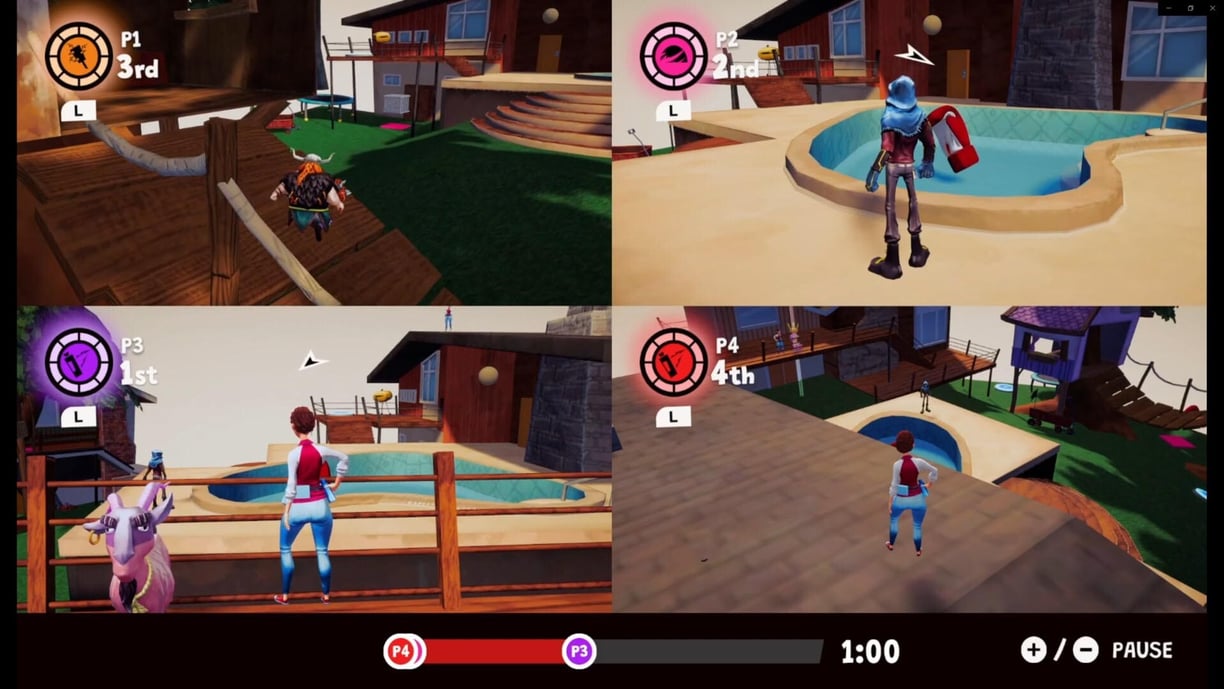

That Damn Goat in-game screenshot
I worked on That Damn Goat throughout the entire development process, starting in 2020 and ending in 2024. Below is a summary of my responsibilities:
Team Building & Hiring
Helped define role requirements and write job postings for all of our artist hires
Reviewed portfolios and resumes from all the artist applicants
Interviewed all artist candidates
Participated in team discussions on hiring decisions
Corresponded with applicants and team leads regarding position details
Meetings - I participated in an average of 7 meetings every single week throughout the game production.
Art Team Meeting – Collaborated with student artists and faculty art Leads to assign tasks, review progress, and plan future work
Faculty Leads Meeting – Discussed game progress and development strategy
Design Meeting – Discussed level design and general game design such as camera movement, character abilities, and game balance
Leads Playtest – Evaluated game builds, logged bugs, and planned development priorities
Design Deep Dive – Explored design challenges including game balance, character abilities, gadgets, and level flow; playtested other games and examined solutions for camera movement and UI/UX design
Sprint Review / Planning – Alternated weekly between evaluating completed work and setting goals for the next sprint
External Playtest / Leads Visioning – Alternated weekly between external playtests and Leads research and development for game mechanics and concepts
Mentorship
Provided daily critique and feedback on student work progress
Taught new workflows and tools
Co-researched new art production concepts
Conducted portfolio reviews and offered career advice
Documentation
Created comprehensive guides for our entire 3D art pipeline, including:
Base Mesh Construction
ZBrush Sculpt
Low Resolution Game Mesh Construction
UV Mapping
Map Baking
Texturing
Rigging and skinning
Animation
Game Asset Exporting
Textures
Environment Models
Character Models
Animations
Asset Implementation in-engine
Research & Art Direction
Worked with Creative Director Brian Larson to gather reference and develop the animation style for the game
Determined the modeling and sculpting style for character and environment assets
As Art Director, I created the initial assets for the game and thoroughly documented the production pipeline. I shared this pipeline with our student team and trained them on how to follow it effectively. In many cases, I began work on key assets and then guided students in completing them, using those early versions as teaching tools. Below is a selection of assets I created entirely on my own.
I sculpted the Goat in ZBrush, based on concept art created by Brian Larson.




The goat in-game mesh wireframe


The goat diffuse texture in Substance Painter
I sculpted the Soccer Mom in ZBrush, based on concept art by Hannah La.
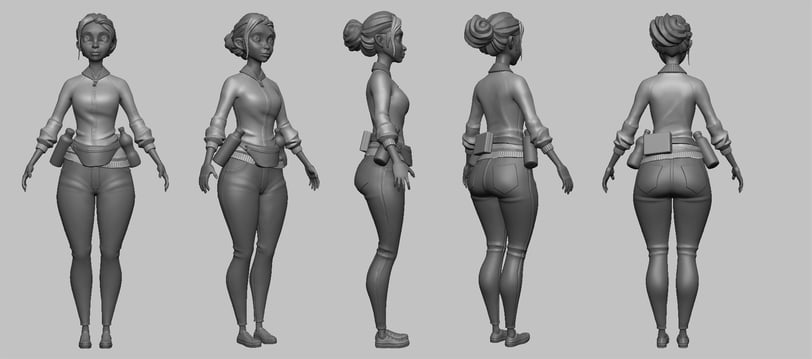



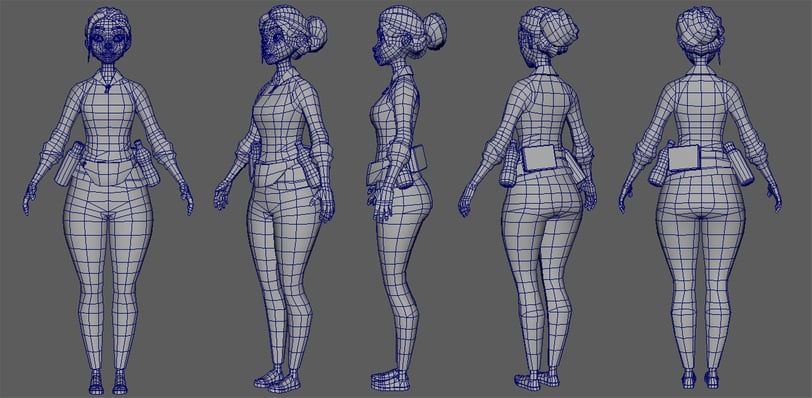

Closeup of the head sculpt
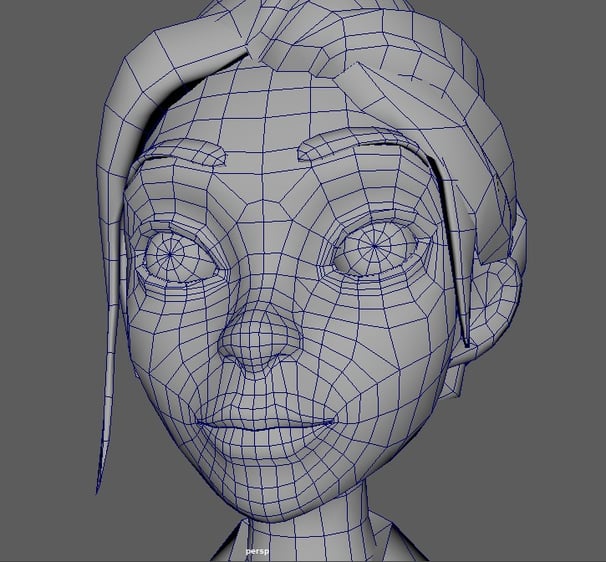

Closeup of the head mesh
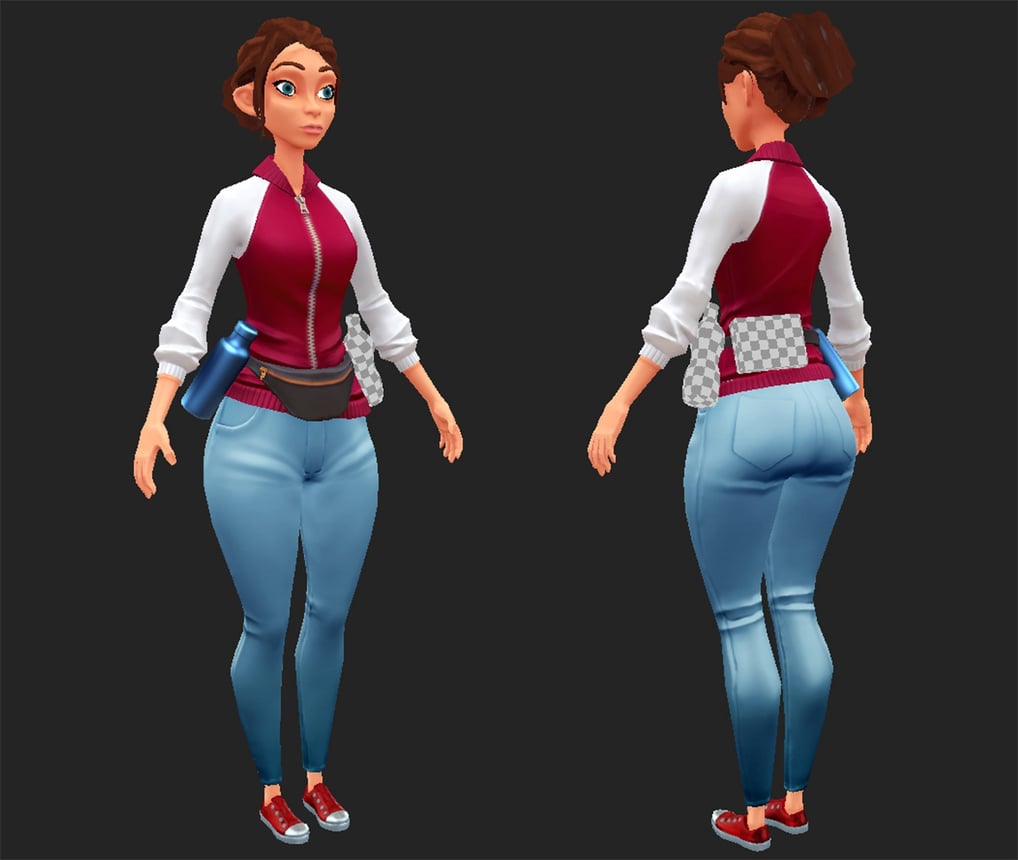

This is the texturing so far in Substance Painter. I was not able to finish it to my liking in the time I had, I plan to polish it more later.
Soccer Mom in-game mesh modeled in Maya
Substance Designer Stucco and Snow
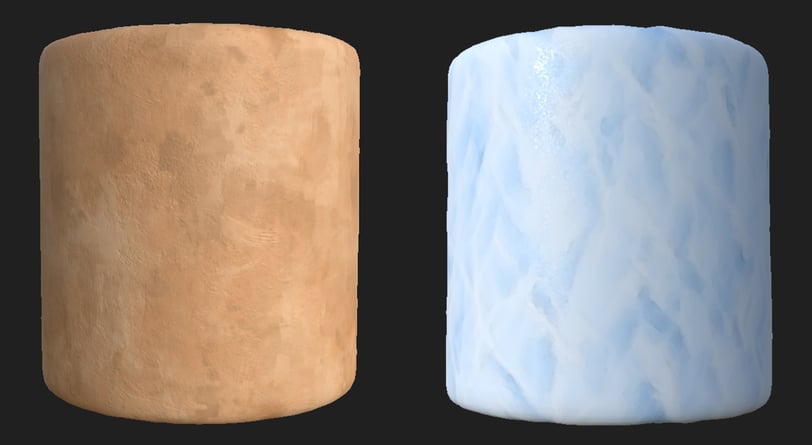

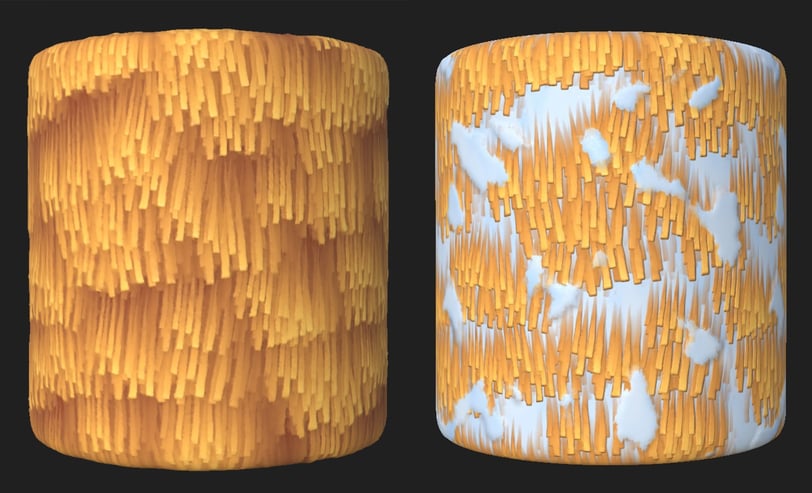

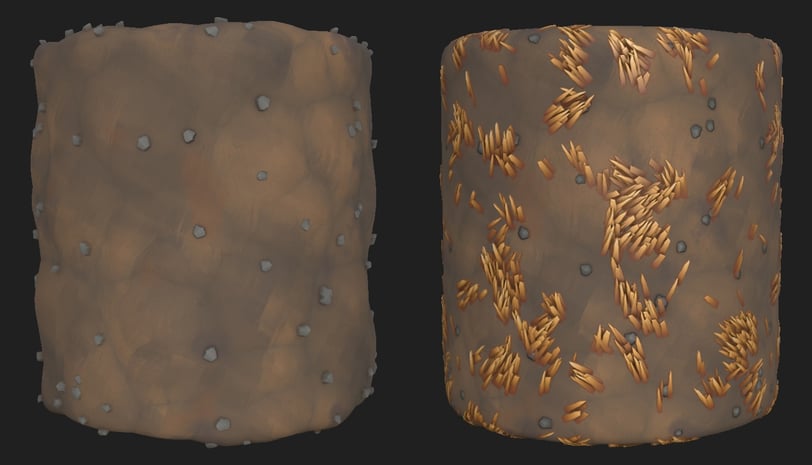

Substance Designer Straw Roof and Straw Roof with Snow
Substance Designer dirt and dirt with dry grass
Teleporter gadget mesh wireframe



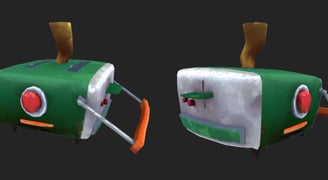
Teleporter gadget Substance Painter diffuse texture